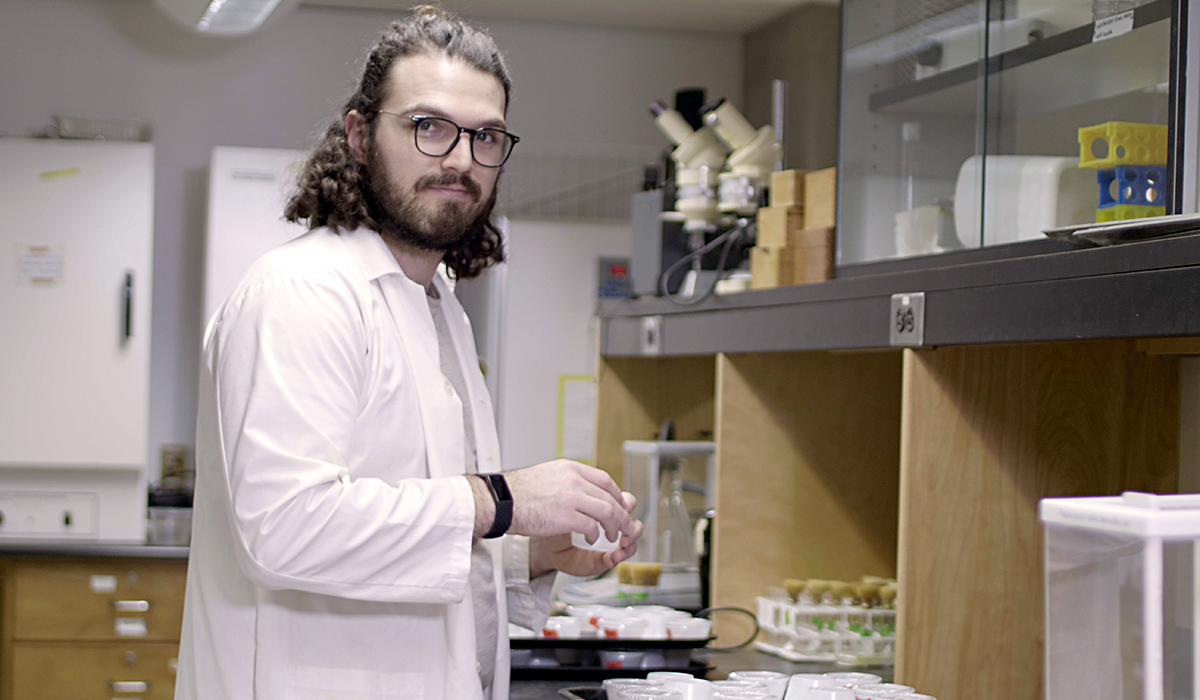Our planet’s population is expected to reach nearly 11 billion by the end of this century, which will create a major global challenge: How will we feed so many people?
Current agricultural practices, whether producing animals or crops, require too much land, water, feed or fertilizer to be sustainable at such a scale.
But Carleton University PhD student Matt Muzzatti believes a small creature could play a big role in the solution to our global food crisis. His research can help provide important protein and nutrients and, at the same time, shows what’s possible when we address significant problems in innovative ways. Through his research, Muzzatti is attempting to optimize the diet of farmed crickets, to minimize the inputs and maximize the yield. In his lab at Carleton University, he raises hundreds of the insects inside individual plastic cups, which are arrayed on cafeteria trays and kept inside an incubator where the temperature and light can be precisely controlled.

Muzzatti, a budding biologist, is exploring the mass rearing of crickets as an alternative food source. “The edible insect industry likes to describe them as a sustainable superfood,” he says. “Not only are they healthy for you, but they also require a lot fewer resources to farm than a comparable amount of protein from conventional sources of meat like beef, pork or poultry.”
Versatile cricket protein powder can be added to pasta sauce, smoothies or just about anything you’re cooking, while the roasted crickets are described as having a nutty, sunflower-like taste. Both are an option for vegetarians looking for alternative sources of protein.